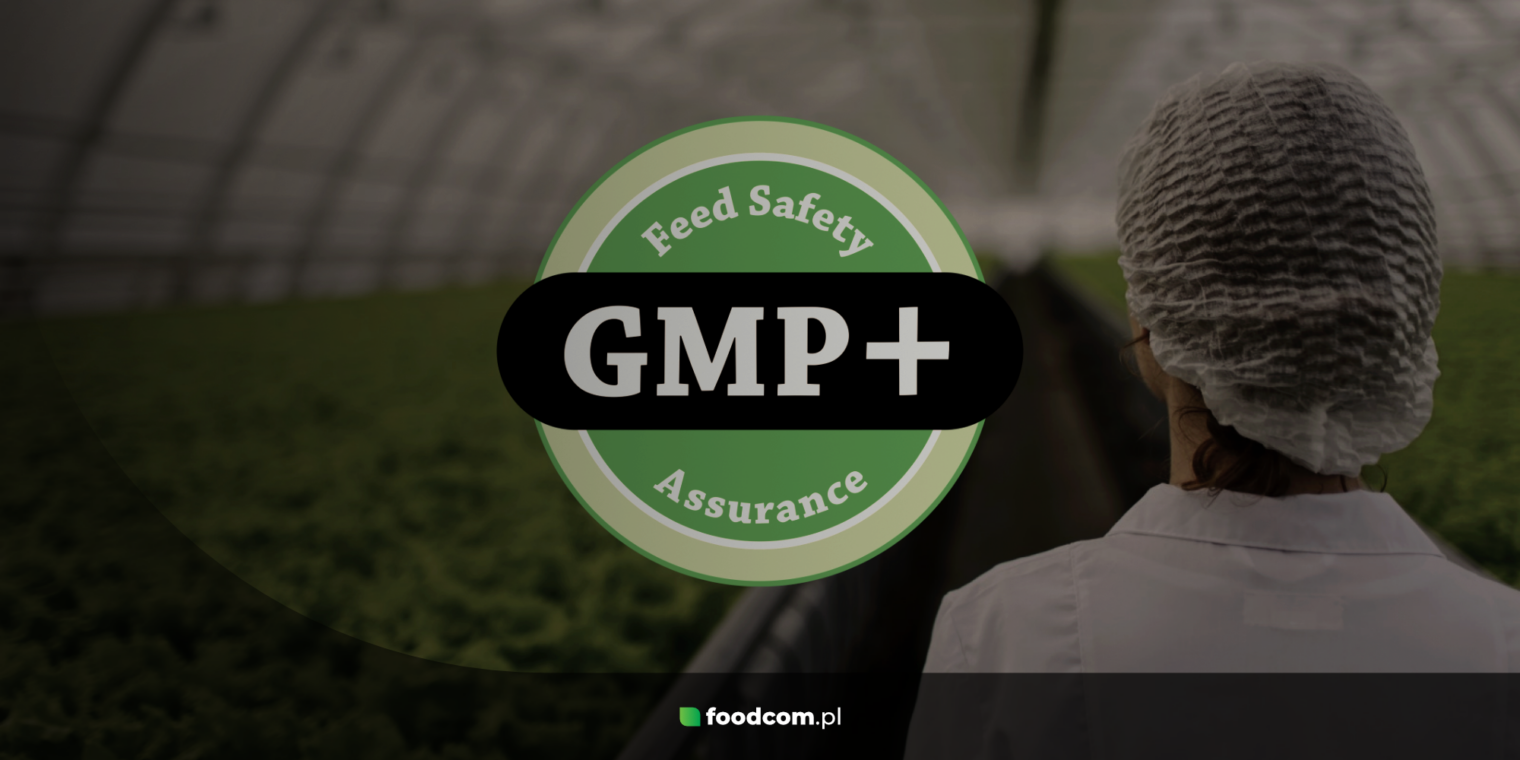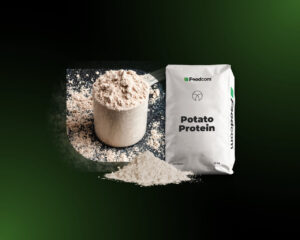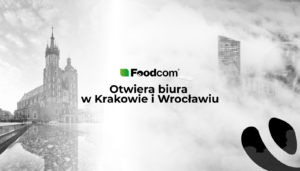- Certyfikat GMP+ zapewnia wysokie standardy jakości i bezpieczeństwa w branży paszowej, łącząc zasady GMP i HACCP.
- Historia GMP+ sięga lat 90. i obejmuje globalny zasięg w przemyśle paszowym.
- Posiadanie GMP+ zwiększa wiarygodność firm, otwiera nowe rynki i optymalizuje procesy.
- GMP+ promuje zrównoważony rozwój, co wspiera firmy, takie jak Foodcom S.A., w budowaniu przewagi rynkowej.
The GMP+ (Good Manufacturing Practice) certificate is an important distinction in the feed industry. It is a guarantee that the highest quality and safety standards are met in feed production and distribution. It is an international quality management system that combines the principles of good manufacturing practice (GMP) with hazard analysis and critical control points (HACCP). The aim is to minimise the risk of contamination and ensure full transparency of production processes.
History and development of GMP+ certification
The GMP+ programme was developed in the 1990s in the Netherlands in connection with the increasing demands for quality and feed safety in Europe. Today, GMP+ certification is recognised worldwide, implemented in various countries and regions, making it one of the most comprehensive tools for quality management in the feed industry.
Scope of GMP+ certification
GMP+ certification covers a wide range of feed production and distribution activities. The certification requirements are based on rigorous standards for each stage of production. The key elements of GMP+ are:
- Quality management – certification includes processes for monitoring production, identifying and controlling hazards. It ensures that products meet all quality and safety requirements.
- Transparency of processes – GMP+ requires full transparency. Companies must document all processes, from the supply of raw materials to the final distribution stage.
- Risk management – The GMP+ system is based on risk analysis (HACCP). It identifies and controls critical points in the production process. This allows early detection and elimination of potential risks.
- Continuous improvement – GMP+ promotes a culture of continuous improvement in quality and safety. Companies must regularly update their procedures and standards .
Benefits of GMP+ certification
Being GMP+ certified brings many benefits to companies operating in the feed industry:
- Increased credibility – GMP+ is proof that a company adheres to the highest quality and safety standards. Customers and business partners are assured that products come from the right sources.
- Access to new markets – it opens the door to new markets, especially those requiring compliance with international quality standards. Companies thus have easier access to global supply chains, which favours their expansion into foreign markets.
- Process optimisation – the implementation of GMP+ involves continuous process improvement. This allows companies to optimise their operations, resulting in cost reductions.
- Increased customer confidence – customers prefer to work with companies that care about the quality and safety of their products. GMP+ gives consumers confidence that products are safe, which strengthens brand loyalty.
GMP+ and sustainability
GMP+ certification not only promotes high quality and safety standards, but also supports sustainability in the feed industry. The requirements of the certification include responsible management of natural resources, minimising environmental impact and attention to animal welfare. In this way, GMP+ contributes to shaping more sustainable practices throughout the feed supply chain.
Implementation of GMP+ using the example of Foodcom S.A.
As a raw material trading and distribution company, Foodcom S.A. has implemented GMP+ certification, underlining its commitment to quality and safety in the feed industry. GMP+ certification allows the company to be fully transparent in its logistics processes and to effectively manage risks in the supply chain. This enables Foodcom S.A. to strengthen its position in the market and build lasting relationships with its business partners.
Impact of GMP+ certification on the feed industry
The introduction of GMP+ certification by an increasing number of companies in the feed industry contributes to raising quality and safety standards worldwide. GMP+ is becoming the new standard. It motivates companies to continuously improve their processes and adapt to increasing market demands. Companies that have implemented this system are setting new standards that are influencing the entire industry.
The future of GMP+ certification
With the global challenges of food safety and climate change, the role of GMP+ certification will become increasingly important. In the future, we can expect this system to continue to evolve to include new areas of business and more stringent sustainability requirements. Companies that choose to implement GMP+ will have a competitive advantage in the global market.
Summary
GMP+ certification is not only a formal confirmation that the highest quality and safety standards are met, but also an expression of commitment to continuous improvement and responsible management of production processes. Having this certificate brings numerous benefits for both companies and consumers, increasing brand trust and opening up new opportunities in the market. The example of Foodcom S.A. shows how the implementation of GMP+ can strengthen a company’s position in the market and contribute to raising standards across the industry. In the future, GMP+ certification will play an increasingly important role in shaping sustainable and safe feed production worldwide.








